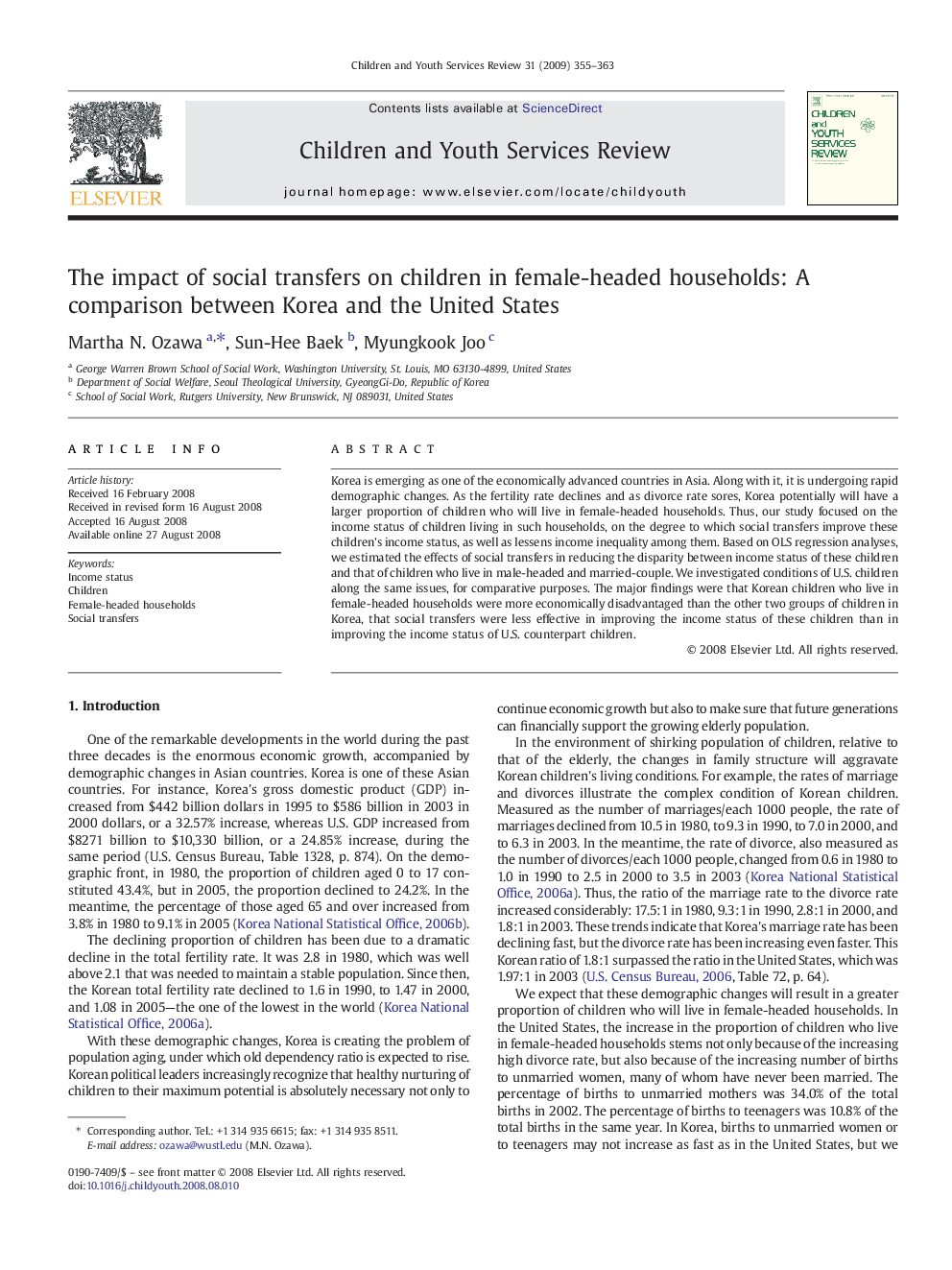| Article ID | Journal | Published Year | Pages | File Type |
|---|---|---|---|---|
| 346893 | Children and Youth Services Review | 2009 | 9 Pages |
Korea is emerging as one of the economically advanced countries in Asia. Along with it, it is undergoing rapid demographic changes. As the fertility rate declines and as divorce rate sores, Korea potentially will have a larger proportion of children who will live in female-headed households. Thus, our study focused on the income status of children living in such households, on the degree to which social transfers improve these children's income status, as well as lessens income inequality among them. Based on OLS regression analyses, we estimated the effects of social transfers in reducing the disparity between income status of these children and that of children who live in male-headed and married-couple. We investigated conditions of U.S. children along the same issues, for comparative purposes. The major findings were that Korean children who live in female-headed households were more economically disadvantaged than the other two groups of children in Korea, that social transfers were less effective in improving the income status of these children than in improving the income status of U.S. counterpart children.
